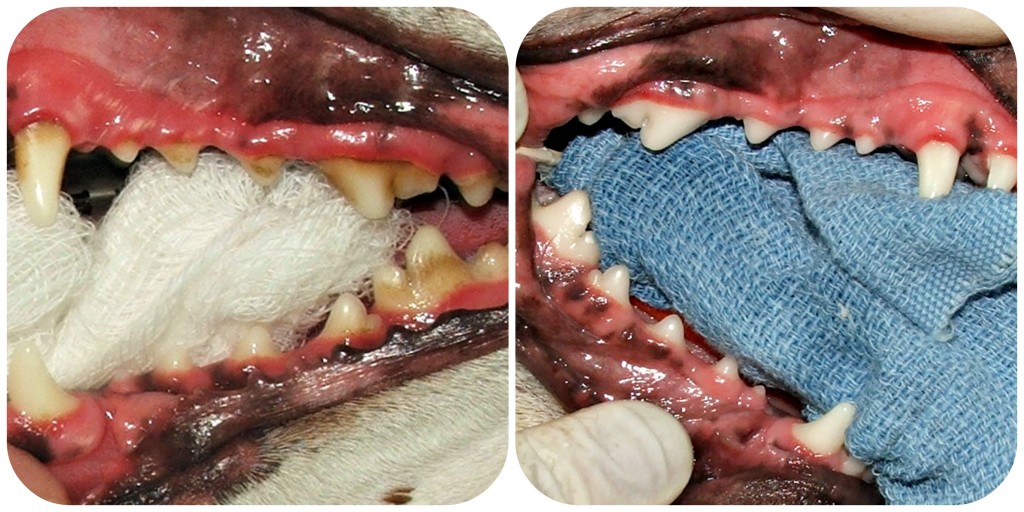February is Pet Dental Health Month! Dental health is an essential aspect of your pet’s overall health, and dental problems can cause, or be caused by, other health problems. It’s necessary to have your veterinarian check your dog or cat’s teeth and gums at least once a year to examine for early signs of a problem and to keep your pet’s mouth healthy.
Pet Dental Health Month
Why is Pet Dental Health Important?

Your pet relies on his or her teeth to not only eat, meow or bark, and chew but also to function as hands. Both dogs and cats will carry items, investigate new objects and defend themselves using their teeth. Therefore, it is essential to make sure your pet’s teeth are healthy.
There are some dental diseases that are immediately noticeable at the surface, such as abscesses, lacerations or broken teeth. However, there are many underlying diseases that occur due to poor dental health. A disease that begins in the teeth and gums can eventually lead to kidney and heart disease or problems with the intestinal tract or joints. In addition, tiny bacteria can become rooted within your pet’s gums and quickly spread throughout the rest of the body.
Signs of Pet Dental Disease
Make sure to schedule a check up with your vet here at All Pets if you observe any of the following signs of pet dental disease:
- bad breath
- broken or loose teeth
- extra teeth ore retained baby teeth
- teeth that are discolored or covered in tartar
- abnormal chewing, drooling or dropping food from the mouth
- reduced appetite or refusal to eat
- pain in or around the mouth
- bleeding from the mouth
- swelling in the areas surrounding the mouth
Causes of Pet Dental Problems
While cavities are less common in pets than in people, they can have many of the same dental problems that people can develop. These include the following:
- broken teeth and roots
- periodontal disease
- abscesses or infected teeth
- cysts or tumors in the mouth
- malocclusion, or misalignment of the teeth and bite
- broken (fractured) jaw
- palate defects (such as cleft palate)
The most common dental condition in dogs and cats is periodontal disease. By the time your pet is 3 years old, he or she will very likely have some early evidence of periodontal disease. If you don’t take effective preventative measures, this will worsen as your pet grows older. Early detection and treatment can prevent severe problems and pain for your pet due to advanced periodontal disease. Periodontal disease does not just affect your pet’s mouth. Other health problems associated with periodontal disease include kidney, liver and heart muscle changes.
Older Pets Can Benefit from Dental Care
As your pet gets older, they might require special dental care that deals with wear and tooth loss.
Additionally, older pets may live longer if dental needs are met and maintained.
Schedule Your Dental Health Checkup Today!

When you come to All Pets Veterinary Medical for an exam, our veterinarians will create a comprehensive oral health assessment and treatment plan for your pet. Our team of trained pet vets wants to improve the health and well-being of your pet and provide you with as much information as possible. We will recommend a dental cleaning if needed.
These are just the basics of Pet Dental Health Month. Contact us with the link below to schedule your pet’s dental health checkup today!
















